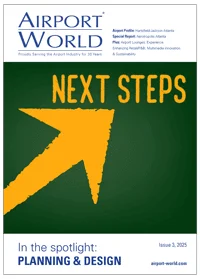Queen Alia International Airport: Sustaining momentum
Share

We find out more about the growth, development and expansion plans of Queen Alia International Airport, Jordan’s air gateway to the world.
With passenger traffic on the rise, a newly extended concession agreement for Airports International Group (AIG) and plans underway for the next phase of its infrastructure development, these are busy times for Jordan’s Queen Alia International Airport.
The Amman gateway – commonly referred to as QAIA by AIG instead of its given IATA code of AMM – handled a record 4.4 million passengers in the first half of 2025.
Its best-ever first-half year performance for passenger traffic represented a 6% rise over H1 2024. Aircraft movements were also up by 2.2% during the same period to 36,331.
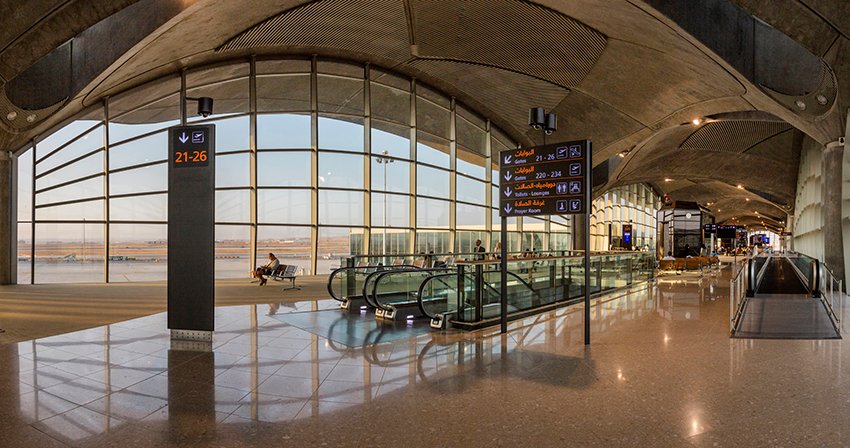
And the upward trend has continued into the second half of the year with August proving to be its busiest ever month, while QAIA’s recently released traffic figures for September show that it handled 834,894 passengers during the month, a notable 15.7% rise on the corresponding period a year ago.
The gateway also recorded 6,965 air traffic movements and processed 6,282 tons of cargo during September 2025.
The new figures mean that QAIA handled a total of 7.3 million passengers (+7.5%) and 59,268 aircraft movements (+4.7%) in the first nine months of 2025.
“September 2025 marked a steady return to regular traffic levels at QAIA, signalling a solid rebound after the summer season,” noted Airport International Group CEO, Nicolas Deviller.
“This recovery was supported by the return of Jordanian expatriates, consistent travel demand and enhanced airline connectivity.
“These results underscore QAIA’s resilience and operational stability despite regional challenges and emphasise the dedication of our teams and partners.
“Looking ahead, we remain committed to sustaining this momentum, elevating the passenger experience and reinforcing QAIA’s role as Jordan’s prime gateway to the world.”

The upward trend in passenger numbers is very welcome after last year’s slight dip in passenger traffic, which AIG attributed to “the challenges posed by regional tensions, which impacted the overall performance” at QAIA.
The difficult operating climate led to a 4.4% decline in passengers compared to 2023 as a total of 8.79 million passengers passed through QAIA’s facilities in 2024. On the plus side though, cargo volumes soared by 12% to 75,450 tons.
DEVELOPMENT OF QUEEN ALIA UNDER AIG
While it hasn’t been all plane sailing for AIG since it was awarded the concession to operate QAIA in 2007 – the sharp drop in passenger numbers during the COVID-19 pandemic being a case in point – there is no denying that its leadership has been the catalyst for the transformation of the gateway.
Indeed, since AIG signed the Build-Operate-Transfer (BOT) concession agreement to manage the rehabilitation, expansion and operation of the airport, its traffic numbers have more than doubled from 3.9 million in 2007 to 8.7 million in 2024, while earning a number of prestigious customer service and sustainability achievements.
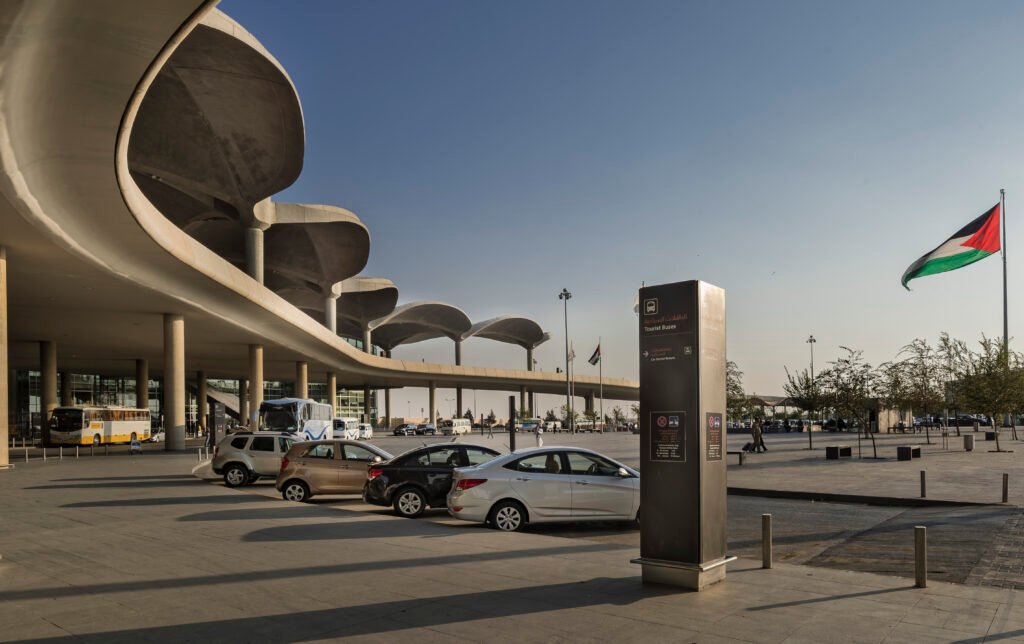
These have included QAIA being named Best Airport by Size and Region (Middle East, 5 to 15 million passengers) eight times in ACI World’s Airport Service Quality (ASQ) Survey, the world’s leading airport customer experience benchmarking programme.
It has also twice been chosen by passengers as the ‘Most Enjoyable Airport in the Middle East’ in the ASQ programme and, in 2024, attained a 4-Star Airport Rating following its first-ever participation in the SKYTRAX World Airport Audit, signifying that staff service or product standards meet a good quality level.
If that wasn’t impressive enough, Queen Alia also became the first airport in the Middle East to achieve Level 3 of ACI World’s Airport Customer Experience Accreditation programme.
So, is it safe to say that being customer service focused is a key strategy of Airport International Group?
Deviller says: “For us at Airport International Group, customer service is a mindset, not a function. Every decision we make is rooted in our responsibility to create a seamless, welcoming journey for passengers, while shaping QAIA into a future-ready airport that reflects Jordan’s sustainability ambitions.
“By investing in people, partnerships and eco-conscious infrastructure, we are building a gateway that grows with purpose and resilience.”

TOP OF THE AGENDA: SUSTAINABLE DEVELOPMENT
Deviller and Airport International Group are also very proud that QAIA became the first airport in the Middle East and second in Asia-Pacific to attain Level 4+ status in the Airport Carbon Accreditation programme.
Recently renewed until May 2028, the certificate reaffirms AIG’s steadfast commitment to environmental stewardship, climate action and supporting the global aviation sector’s goal of achieving net-zero carbon emissions by 2050.
Deviller believes that the renewed accreditation acknowledges QAIA’s exceptional work in aligning its carbon management strategies with global climate goals by reaching absolute emissions reductions, responsibly compensating for residual emissions under its control, and actively engaging business partners in these efforts.
Airport International Group notes that the accreditation will also largely benefit QAIA’s partners, such as the airlines, by supporting them in meeting their decarbonisation objectives.
Indeed, it states that by leveraging the airport’s advanced sustainability initiatives, its partners can reduce their carbon footprint and enhance their environmental performance, “contributing meaningfully to the broader goal of a sustainable aviation industry”.
“Reducing QAIA’s carbon footprint is a responsibility that we at Airport International Group have embraced since day one,” notes Deviller.
“This renewal demonstrates to our passengers, partners, grantor and wider community that QAIA is not just connecting people, but also leading the charge in climate-conscious operations and sustainable transformation.
“We extend our sincere gratitude and congratulations to our team and stakeholders for their inspiring dedication to elevating QAIA as a trailblazing gateway within Jordan and the region.”
The carbon accreditation milestone complements a broader environmental journey driven by Airport International Group. Shortly after inaugurating the new terminal building in 2013, the airport embarked on a strategic decarbonisation path by joining the Airport Carbon Accreditation programme.
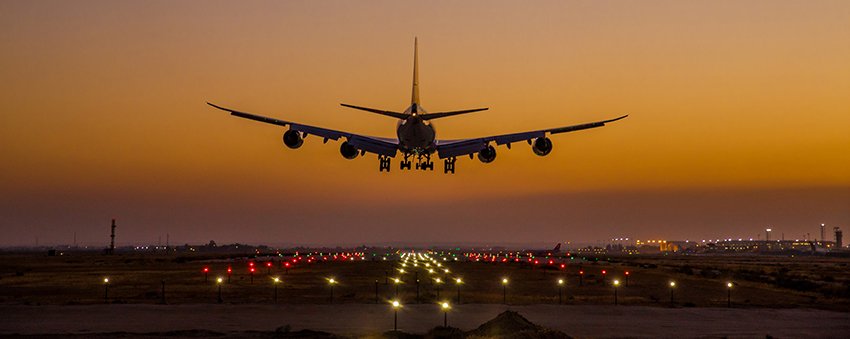
Over the past decade, it has steadily advanced through the programme’s tiers, becoming the first airport in the Middle East to secure most of them, culminating in Level 4+ certification.
Moreover, QAIA’s 4.8MWac Solar Farm, which generates over 10.5GWh of clean electricity annually, meets nearly 37% of Airport International Group’s operational energy needs and eliminates approximately 12,000 tons of CO2 emissions annually.
This landmark project not only places QAIA among the largest solar-powered airports in the MENA region but also furthers Jordan’s national ambition to increase the share of renewables in its energy mix.
Deviller is quick to point out that QAIA’s track record in environmental stewardship has earned it repeated recognition by ACI Asia-Pacific and Middle East’s Green Airports Recognition programme, with a Silver award in 2017 for Energy Management and a Gold award in 2022 for Carbon Management.
In tandem, AIG has contributed to climate mitigation and biodiversity preservation by launching tree-planting campaigns in Al Jizah and Dibeen Forest Reserve, underscoring a holistic approach to sustainability that extends beyond airport grounds.
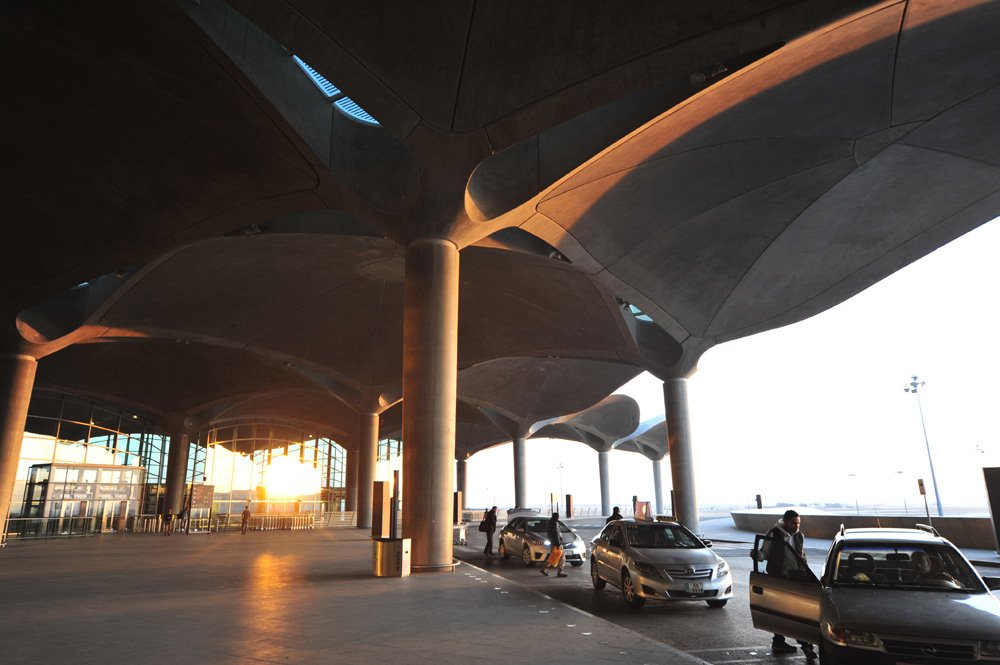
LOOKING TO THE FUTURE
Earlier this year, AIG signed a joint declaration with Jordan’s Ministry of Transport reaffirming its commitment to the modernisation, development and future growth of Queen Alia International Airport.
It notes that this reflects the strength of its partnership with the Government of Jordan (GoJ) as its grantor – one built on trust, transparency and a shared ambition to ensure QAIA continues to serve as the Kingdom’s global gateway and a source of national pride.
The joint declaration follows the government’s decision last year to extend AIG’s Build-Operate-Transfer (BOT) concession for the gateway until 2039, effectively ensuring its continued investment in the rehabilitation, expansion and operation of Queen Alia International Airport.
With this renewed commitment, the Ministry of Transport – currently led by Minister of Transport, Dr Nidal Qatamin – and Airport International Group have reinforced their focus on the developing the airport, and more specifically on “upholding the highest standards of safety, security and operational efficiency at QAIA”.
Both parties also emphasised their dedication to enhancing the passenger experience through premium services, real estate development, innovation and stakeholder incentives, while advancing sustainability initiatives by reducing carbon emissions and adopting renewable energy solutions.

Put another way, the extension of the concession agreement is seen as pivotal to developing and strengthening QAIA’s position as a leading regional and global aviation centre.
It also aligns with the GoJ’s strategy to support the air transport sector and boost QAIA’s international competitiveness.
And it backs efforts to improve passenger services, upgrade infrastructure and integrate advanced technology across airport facilities in a bid to ensure seamless and efficient travel.
Several airport projects are underway or have been completed, including a capacity expansion plan to accommodate 18 million passengers annually, the installation of nine state-of-the-art e-gates, a water supply enhancement project, security checkpoint upgrades at QAIA’s entrances and exits and studies for rehabilitating the southern runway.
AIG notes that to ensure the continued development of QAIA, ongoing collaboration and co-ordination among all relevant stakeholders is required to “maintain the highest standards of performance and aviation competitiveness, contributing to national economic growth and cementing Jordan’s standing as a key air transport centre in the region”.
From Airport International Group’s perspective, Deviller believes that extending the concession by another seven years, with the possibility of future extensions, gives the airport operator the opportunity to take things to the next level in terms of expanding QAIA’s capacity and worldwide connectivity, integrating smart technologies and advancing sustainability initiatives.
Can he give us an inside scoop of what we can expect in the future in terms of expanding/growing the airport’s key airport infrastructure and the timeframe for their development?
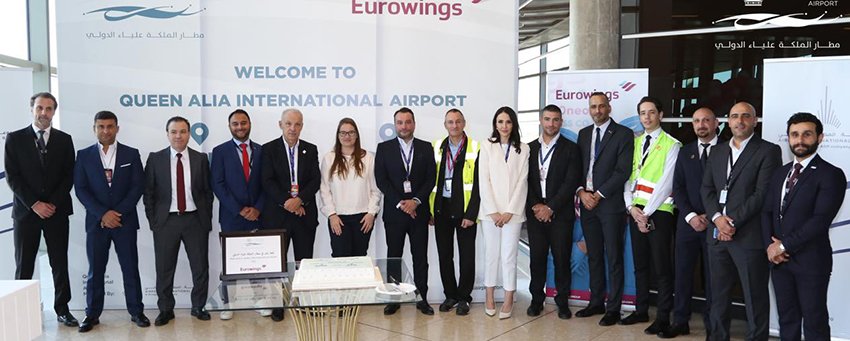
Deviller says: “At QAIA, we have set forth an ambitious enhancement plan to expand our capacity from 12 to 18 million passengers annually, through the execution of 15 pivotal projects across our terminal and airside facilities by 2034.
“Alongside these long-term developments, we have completed multiple initiatives to meet immediate operational and business needs, while keeping sustainability at the heart of our efforts.
“From constructing our onsite solar farm to securing a dedicated water pipeline for reliable supply and improving accessibility across the airport, every step underscores our unwavering commitment to sustainable growth, operational excellence and preparing QAIA to meet the needs of the future.”
AIRLINES AND ROUTE NETWORK
QAIA’s growing route network means that during its busiest ever month in August it was served by 35 airlines operating scheduled services to 67 destinations in 36 countries across the Middle East, Europe, Asia, North America and Africa regions.
The top five airlines serving QAIA in terms of traffic passenger traffic are Royal Jordanian, flynas, Jordan Aviation, Qatar Airways and Emirates. The most popular destinations served from Amman are Dubai, Istanbul, Riyadh, Cairo and Jeddah.
Eurowings became the latest airline to launch services to QAIA when it commenced a non-stop service between Stuttgart and Amman on Monday, October 27. The German airline will increase to two weekly flights on the route in December.
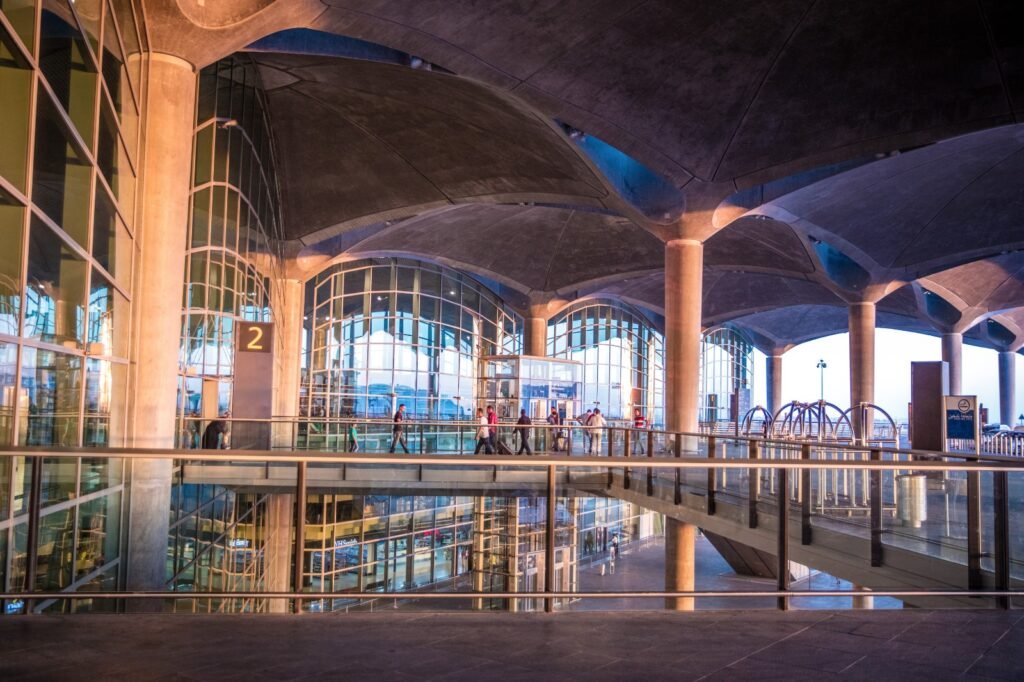
Speaking about the new addition to Amman’s list of airlines, Deviller enthused: “We are delighted to welcome Eurowings to QAIA, marking yet another milestone in our pursuit of expanding Jordan’s connectivity with key European markets.
“As the value airline of Lufthansa Group, Eurowings offers passengers affordable and flexible options to explore both Jordan and Germany, supporting leisure and business travel between the two nations.
“We look forward to building a strong and lasting relationship with Eurowings as we continue shaping a welcoming travel experience that feels like home at Jordan’s prime gateway to the world.”
In the first half of 2025, QAIA witnessed a significant rebound in airline activity, marked by the resumption of services by several carriers and the introduction of new airlines and routes.
For example, flyadeal and Ajet resumed operations at QAIA, while Royal Jordanian grew its global network with the launch of its own routes to Damascus, Aleppo, Mumbai and Washington DC. Meanwhile, Libyan Wings and SunExpress commenced operations at the airport.
These developments underscore QAIA’s growing appeal as a regional hub and its continued efforts to enhance connectivity across key markets.

They follow the introduction of new direct routes to London Stansted and Manchester in the UK, Berlin in Germany, AlUla in Saudi Arabia (via Royal Jordanian) and Moscow in Russia (via Jordan Aviation and Royal Jordanian) last year.
Deviller says: “We are fortunate to already have strong connectivity to North America through Royal Jordanian’s direct services to key cities in both Canada and the United States.
“Supporting our national airline’s ambitious development is vital to our mission as its growth directly strengthens QAIA’s role as a strategic gateway for Jordan.”
ECONOMIC ENGINE
According to a comprehensive study commissioned by AIG and conducted by IATA Consulting, in 2019, QAIA supported 238,000 jobs and $3.53 billion in GDP.
By 2032, these figures are expected to increase to 278,000 jobs and $5.5 billion in GDP. Underscoring its socio-economic significance and standing as the main entry point to the Kingdom, QAIA processes over 97% of passengers and 99% of cargo entering the country.
QAIA operator, Airport International Group, is a Jordanian company made up of local and international investors with proven experience in airport rehabilitation, enhancement, operation and management.
Its main stakeholder is global airport operator, Groupe ADP (51%), with the other shareholders comprising Meridiam Eastern Europe Investments (32%), Mena Airport Holding Ltd (12.25%) and Edgo Investment Holdings Ltd (4.75%).

